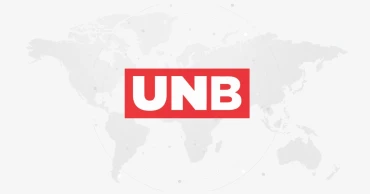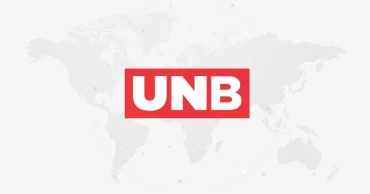Blood Donation
Donating blood is an act of solidarity, join the effort and save lives
This World Blood Donor Day, WHO is urging potential blood donors in the South-East Asia Region and across the world to “join the effort” to save lives, improve health and advance health equity by making regular, voluntary, unpaid blood donations. An estimated 118.5 million blood donations are collected worldwide, of which around 40% are collected from high-income countries, home to just 16% of the world’s population. In low-income countries, a majority of blood transfusions are given to children under 5 years of age and to manage pregnancy-related complications, making regular donations by voluntary unpaid donors a critical tool in the fight against maternal, neonatal and child mortality. An estimated 2 million more units of blood are urgently required from voluntary unpaid donors in the Region to help patients of all ages live longer and with a higher quality of life, to support complex medical and surgical procedures, and to accelerate progress towards universal health coverage (UHC), health system resilience and Health for All.
Read: Queen Elizabeth II’s extraordinary life and reign
Throughout the COVID-19 response, countries of the Region have continued to implement national blood policies, with a focus on maintaining essential blood donation and transfusion services, increasing the quality of donor care, enhancing the clinical use of blood, and strengthening oversight and surveillance of the chain of blood transfusion. All blood donated in the Region is screened for HIV, hepatitis B, hepatitis C and syphilis, and more than 80% is collected from voluntary unpaid donors. From 2008 to 2018, the Region reported the highest proportional increase of voluntary unpaid blood donations among all WHO regions, and the second-highest increase in absolute numbers. Amid the pandemic response, WHO has conducted a series of online trainings to increase Member State capacity to achieve the outputs of the WHO Action Framework to advance universal access to safe, effective and quality-assured blood products, as well as WHO’s five-year plan to help build effective and efficient regulatory systems.
Several priorities require targeted attention. First, policy makers and programme managers should reappraise and where appropriate update national blood action plans while mobilizing adequate and reliable financing to implement the same. Second, health facility administrators and managers should increase health worker capacity to safely collect, store and administer blood and blood products, instilling a culture of quality that encompasses all aspects of the chain of blood transfusion. Third, policy makers should standardize data collection and reporting and implement uniform systems for traceability, surveillance, haemovigilance and pharmacovigilance for both public and private sector providers. Fourth, programme managers, educators and civil society groups should increase awareness of the benefits of regular blood donation, especially among youth, who should be encouraged to make blood donation a habit.
Read: War in Ukraine takes toll on East Asian economies
Every blood donation improves or saves lives and enhances social solidarity. It sends a powerful message of mutual aid, civic commitment and social buy-in to UHC and Health for All. For healthy adults, blood donation is not only safe, but provides a sense of belonging and pride, as well as a free health check-up. By establishing a stable base of regular, voluntary, unpaid blood donors, and by securing the chain of blood transfusion, communities and countries in the Region can ensure all people have timely and equitable access to safe, effective, and quality-assured blood and blood products. On World Blood Donor Day, WHO celebrates and salutes voluntary unpaid blood donors, urges all potential blood donors to join the effort to save lives and improve health, and reiterates its commitment to ensure all Member States have in place nationally coordinated, efficiently managed, sustainable and self-sufficient blood systems.
Dr Poonam Khetrapal Singh is the WHO Regional Director for South-East Asia
3 years ago
Over 11 mn Bangladeshis sign up as blood donors on Facebook
So far, over 11 million Bangladeshis have signed up to receive notifications with opportunities to donate blood, says Facebook on Monday.
Globally, over 100 million people have signed up to be blood donors on Facebook since this feature was launched in 2017.
In response to urgent blood shortages during the pandemic, it was scaled up to 26 countries in the past year.
Read Why to Give Blood? Know the Benefits of Blood Donation
“At Facebook, we are trying to build online communities for positive impact. During the pandemic, Facebook has worked with Bloodman and blood banks around the country to ensure people continue to have safe access to blood. This World Blood Donor Day, we encourage more Bangladeshis to sign up, donate blood to their nearest blood banks and motivate others,” said Sabhanaz Rashid Diya, who leads public policy for Bangladesh at Facebook.
As countries around the world continue to grapple with the ongoing pandemic, blood banks are in urgent need of blood donors.
In conjunction with World Blood Donor Day this year, Facebook has partnered with Bloodman to urge more people in Bangladesh to become blood donors and encourage friends and family to do the same.
Read: Lockdown triggers blood shortage in Bangladesh
In 2018, Facebook’s Blood Donations feature was launched in Bangladesh in partnership with Bloodman, the country’s first digital blood donation organization.
This was a collaboration between Facebook and the ICT Division of Bangladesh to connect people to their local blood banks, so they know where there is a shortage and when it is safe to donate.
People in Bangladesh can play a role in raising awareness about the importance of donating and help build a reliable and sustainable supply of blood in the country, said a media release.
Read: ICT Division partners with Facebook, Bloodman BD to boost .blood donation
To better support community-based blood collection, Facebook also introduced a way for blood banks to share their mobile drives via Facebook Events, increasing their visibility to nearby, potential donors.
“Hospitals and blood banks across Bangladesh have been facing challenges in collecting blood because of the pandemic. At this time, Facebook’s Blood Donations tool has made it easier for blood banks to digitise their services and connect with potential blood donors. We thank Bloodman and Facebook for digitising the blood donations system and raising awareness about donating. Patients in hospitals can now use this technology to receive care swiftly during the COVID-19 pandemic,” said Syed Mujibul Huq, Additional Secretary, Ministry of Health and Family Welfare.
To receive notifications from blood banks nearby about donating, one needs go to the Blood Donations feature in the About section of Facebook profile.
Read Quantum Foundation honours 221 voluntary blood donors
4 years ago
Lockdown triggers blood shortage in Bangladesh
A week ago, a crisis hit the family of Shahed Alam's best friend -- there was no donor available to donate blood for his pal's cancer-stricken father. After unsuccessfully knocking the doors of blood banks across the city for two days, Shahed finally decided to harness the power of social media on Saturday, but to no avail.
"I have been trying hard to arrange blood for my friend's father -- a cancer patient admitted to Mohakhali Cancer Hospital -- since last week. But finding donors is turning out to be a Herculean task amid the nationwide lockdown. Due to strict movement restrictions and the fear of Covid, blood donors are just not stepping out of their homes," he told UNB.
Yes, the Covid-19 lockdown has severely affected the movements of donors across the country, triggering a massive shortage of blood. Most blood banks in the capital as well as other parts of Bangladesh are running short of life-saving blood.
"Blood donors are just reluctant to come out these days. And those who do are often subjected to grilling at police check posts across the city. This is because the Good Samaritans don't possess the mandatory movement passes, and convincing the sentry at a police check post is also a time-consuming affair," said another city resident.
Also read: PCR machine reaches RMCH for COVID-19 test
Bangladesh's annual demand for blood is around 8 lakh units. About 25% of the nation's annual blood requirement come from voluntary donation, 20–25% from paid donors, and 50–55% from one-time donation for a particular patient. But the country has seen a drastic fall in both voluntary and direct blood donations in recent weeks.
The decline in blood donations has triggered a chain reaction -- plasma collection has been hit hard. Plasma is the liquid portion of blood that contains antibodies. Many countries have already allowed the use of plasma therapy to treat severely ill Covid patients. The therapy involves the use of plasma of recovered Covid patients as a potential treatment.
4 years ago
ICT Division partners with Facebook, Bloodman BD to boost blood bank
Bloodman, the first digital blood donation organization in the country, in partnership with Facebook and ICT Division, is offering free training to utilize the Facebook blood donation feature.
5 years ago
Why to Give Blood? Know the Benefits of Blood Donation
World Blood Donor Day 2021 has arrived this year with the slogan “Give blood and keep the world beating”. The world needs blood donors to deliver safe blood to sick people who are struggling to survive injuries, surgeries, or diseases. Though Blood donation is a noble cause in every civilised society on earth, many healthy adults fear donating blood. Read this article to know the basic concepts and benefits of blood donation.
5 years ago
Quantum Foundation honours 221 voluntary blood donors
Quantum Foundation, a voluntary blood donors' organisation, on Thursday honoured a total of 221 voluntary blood donors who have donated blood multiple times in their lifetime.
5 years ago



.jpg)



